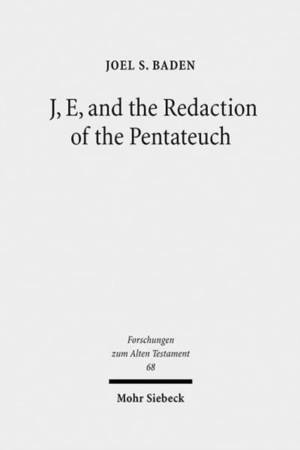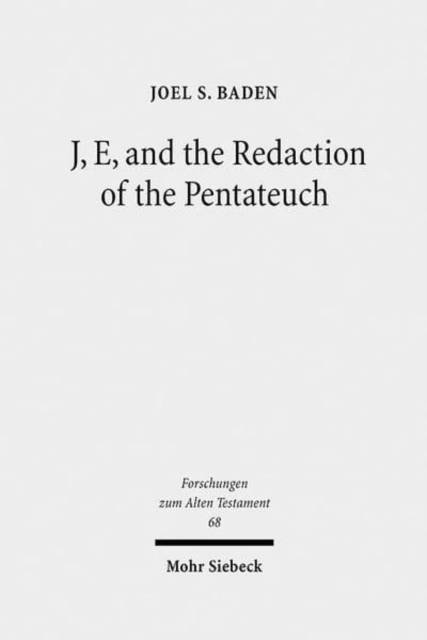
Bedankt voor het vertrouwen het afgelopen jaar! Om jou te bedanken bieden we GRATIS verzending (in België) aan op alles gedurende de hele maand januari.
- Afhalen na 1 uur in een winkel met voorraad
- In januari gratis thuislevering in België
- Ruim aanbod met 7 miljoen producten
Bedankt voor het vertrouwen het afgelopen jaar! Om jou te bedanken bieden we GRATIS verzending (in België) aan op alles gedurende de hele maand januari.
- Afhalen na 1 uur in een winkel met voorraad
- In januari gratis thuislevering in België
- Ruim aanbod met 7 miljoen producten
Zoeken
Omschrijving
Joel S. Baden addresses the relationship between the J and E documents in the Pentateuch. He demonstrates that, contrary to the standard claims of classical source criticism, the J and E sources were never combined into a JE document. Rather, these two sources were combined with each other at the same time that they were combined with the P and D documents, in one process of redaction.After investigating the history of scholarly arguments regarding the existence and combination of J and E, the author goes on to argue in detail for the dependence of D on the separate, independent narratives of J and, primarily, E. Significant attention is paid to the issue of redaction. In particular, Baden critiques the manner in which passages have traditionally been attributed to redactors, and argues for a more restrictive concept of the redactor and his work. It is further argued that the literary evidence in the Pentateuch provides for the existence of only a single redactor, to whom the compilation of all four sources of the Pentateuch is to be attributed.In the course of this study, a number of important questions regarding the composition of the Pentateuch are addressed: the existence of E, the relationship between D and the narratives of Genesis-Numbers, and the nature of the redactor. In the end, this study stands as both a critique of traditional documentary analysis of the Pentateuch and a defense of its fundamental claims.
Specificaties
Betrokkenen
- Auteur(s):
- Uitgeverij:
Inhoud
- Aantal bladzijden:
- 339
- Taal:
- Engels
- Reeks:
Eigenschappen
- Productcode (EAN):
- 9783161499302
- Verschijningsdatum:
- 31/12/2009
- Uitvoering:
- Hardcover
- Formaat:
- Genaaid
- Afmetingen:
- 165 mm x 234 mm
- Gewicht:
- 739 g

Alleen bij Standaard Boekhandel
+ 331 punten op je klantenkaart van Standaard Boekhandel
Beoordelingen
We publiceren alleen reviews die voldoen aan de voorwaarden voor reviews. Bekijk onze voorwaarden voor reviews.









